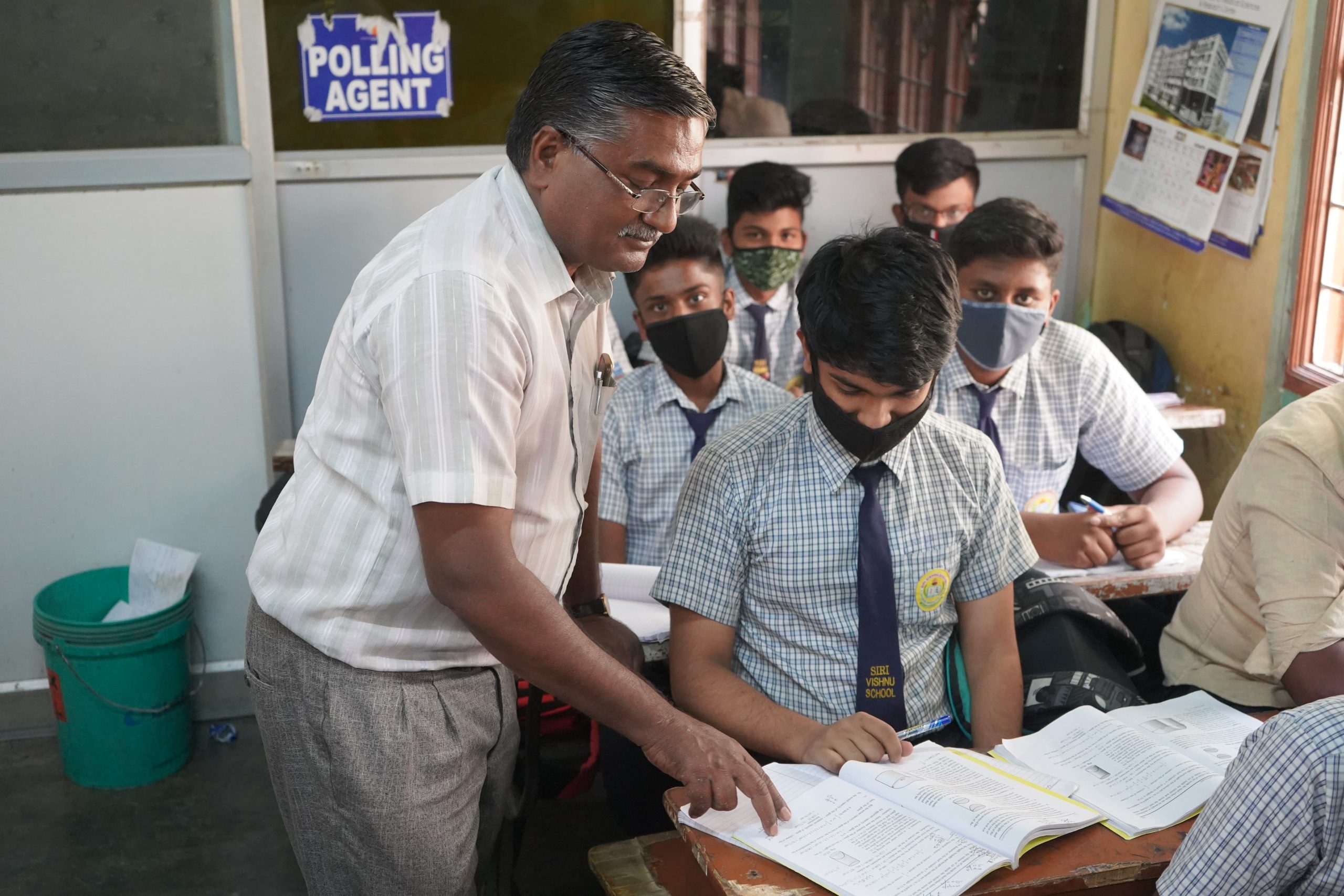The Annual Status of Education Report (ASER) 2021 showed a 6% rise in government school enrolment between 2018 and 2021. This increased student migration from private to government schools was attributed to the financial distress faced by families due to Covid-19 and a closure of low-cost private schools, especially in rural India. With the increase in the number of students in public schools, there is a pressing need for us to assess the way we are equipping our teachers with skills to engage students in positive learning spaces.
The National Achievement Survey (NAS) 2021 reported 92 per cent scope for professional development in school teachers, while only 52% participated in a professional development programme and only 42% received mentoring, peer observation and coaching. Along with the gap in capacity building of teachers, the damage inflicted by the pandemic has impacted young people’s ability to regulate emotions, manage stress and anger. In February 2022, when schools reopened after a gap of nearly 2 years of the pandemic, Dream a Dream conducted a qualitative study with 26 teachers from four low-income private schools in Bengaluru to understand changes in student behaviour from a teachers’ perspective. 76% of teachers reported increased aggression in middle and high school students, particularly boys, in comparison to pre-pandemic times. From having a handful of students who misbehaved sometimes to the majority of the class becoming increasingly aggressive; classroom behaviour management suddenly became a big challenge for teachers.
In the UNICEF (2021) report ‘On my mind: How adolescents experience and perceive mental health around the world’, ‘caring teachers’ emerged as a key protective element in schools where adolescents upheld the significance of trusted teachers in encouraging learning, problem solving, shielding them from bullying and providing emotional support. Dream a Dream’s two decades of experience of facilitating life skills programmes for young people shows that empathetic adults and safe spaces allow young people to fully discover their potential and thrive despite adversity. Since teachers play a vital role in shaping young people’s ability to thrive, it was imperative to create a transformatory learning experience for them which equips them with skills to bring more empathy and creativity in the classroom, which was initiated with our Teacher Development Programme (TDP) in 2012. TDP brought in behavioural transformation in teachers by unlocking empathy, expanding their creativity, developing listening and validation skills and the ability to share authentically while learning facilitation skills. Out of the 200 teachers who were part of the TDP in Karnataka, 94% experienced improvement in teaching, increased empathy and self-confidence in an Impact Study of Teacher Development Programme by 60 decibels. 91% teachers also expressed the lack of access to similar self-development opportunities.
Increased empathy equips teachers to understand and address challenges within and outside the classroom. A Science teacher in a low-cost private school shares, “I used to get angry and punish children who did not complete their homework. It was tough for me to manage my innumerable responsibilities and I found my profession tedious. TDP was a turning point in my professional and personal life. It gave me the lens to identify and understand my own emotions, abilities and limitations; which then gave me an insight into the emotional journey and natural abilities of children. I started talking to my students and family members and enquiring about their well being. Gradually, I began to notice people around me becoming more forthcoming and my relationships in the classroom and at home improved!”. A big realisation from such anecdotes is that student-centred interventions can only work when we prioritise the wellbeing of teachers. Teachers equipped in life skills create a deep lasting impact in students and in themselves.
Over the years, teachers have shared how adopting the creative life skills approach in their classroom has impacted them. It has helped renew their aspirations, “I didn’t want to become a teacher but had no other option. Today, I have renewed vigour and motivation to be a good teacher.” It empowers teachers to overcome their limitations, “I had stage fear and was embarrassed to talk to others, especially women. TDP has helped me overcome that as it provided me a safe space to communicate and overcome my hesitation.” It significantly deepens the engagement of teachers with students, “I demanded respect from my students by developing fear in them. Now, I have realised that through care, validation and empathy, it is easy to gain respect from every child.”.
When teachers are equipped to integrate the creative life skills approach in academic and non-academic lessons, they are able to create an atmosphere conducive to learning and development and effectively manage challenges arising therein. While teachers bring care and compassion into their pedagogy to enable their students to thrive, let us pause to allow them the time to process the pandemic induced personal and collective trauma. To build a future ready education system, let us bring empathy into our classrooms where behavioural issues are perceived as a window to extend support to the young person and teacher-student relationships are built on trust, collaboration and communication.
About the author: Saba Ahmad is a Copy editor, with the Communications team at Dream a Dream


